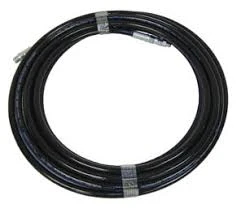sewer pressure washer hose
Understanding Sewer Pressure Washer Hoses A Comprehensive Guide
When it comes to tackling stubborn clogs and maintaining a clean drainage system, sewer pressure washers have become an indispensable tool for both homeowners and professionals alike. Central to the operation of these powerful machines is the sewer pressure washer hose, which plays a crucial role in effectively clearing debris and restoring functionality to your sewer lines. This article will delve into the features, benefits, and essential considerations when choosing a sewer pressure washer hose.
A sewer pressure washer hose is specifically designed to withstand high-pressure water while maintaining flexibility and durability. Typically made of reinforced materials like rubber or thermoplastic, these hoses can handle pressures ranging from 3000 to 5000 PSI, making them suitable for various cleaning applications. The interior of the hose features a smooth surface that promotes optimal water flow, enabling the pressure washer to deliver a powerful blast that can dislodge even the most stubborn blockages in sewer pipes.
One of the most significant advantages of using a sewer pressure washer hose is its ability to not only clear clogs but also to prevent future build-up in the pipes. As high-pressure water jets through the hose, it not only pushes debris and sludge out of the way but also cleans the sides of the pipes, stripping away grease, grime, and other buildup that can lead to future issues. This preventive maintenance aspect can save homeowners and businesses significant amounts in plumbing repairs over time.
sewer pressure washer hose

When selecting a sewer pressure washer hose, several key factors should be considered. First and foremost, length matters. Hoses typically range from 50 to 200 feet, with longer hoses providing added flexibility to reach challenging areas or deep into drains. However, it's important to balance length with pressure loss; longer hoses can reduce the effectiveness of the pressure washer, so it's best to choose a length that is suitable for your specific needs.
Another important consideration is the diameter of the hose. Common diameters range from 1/4 inch to 1/2 inch. A larger diameter hose can handle more water flow and is often better for heavy-duty cleaning tasks, while smaller diameters are suitable for lighter chores. Additionally, ensure that the hose you choose is compatible with your specific pressure washer model in terms of fittings and pressure ratings.
Lastly, investing in a high-quality sewer pressure washer hose is essential for ensuring safety and efficiency during cleaning tasks. Look for hoses that are abrasion-resistant, have crush-proof fittings, and can withstand extreme temperatures, as these features enhance the hose's durability and performance.
In conclusion, a sewer pressure washer hose is a powerful ally in the fight against clogged sewer lines. By understanding the features and benefits of these hoses, along with the key factors to consider when selecting one, users can ensure that they have the right equipment to keep their plumbing systems in top shape. Whether you are a cleaning professional or a homeowner looking to maintain your drainage system, the right sewer pressure washer hose can make all the difference in achieving effective and efficient results.
-
Ultimate Spiral Protection for Hoses & CablesNewsJun.26,2025
-
The Ultimate Quick-Connect Solutions for Every NeedNewsJun.26,2025
-
SAE J1401 Brake Hose: Reliable Choice for Safe BrakingNewsJun.26,2025
-
Reliable J2064 A/C Hoses for Real-World Cooling NeedsNewsJun.26,2025
-
Heavy-Duty Sewer Jetting Hoses Built to LastNewsJun.26,2025
-
Fix Power Steering Tube Leaks Fast – Durable & Affordable SolutionNewsJun.26,2025

